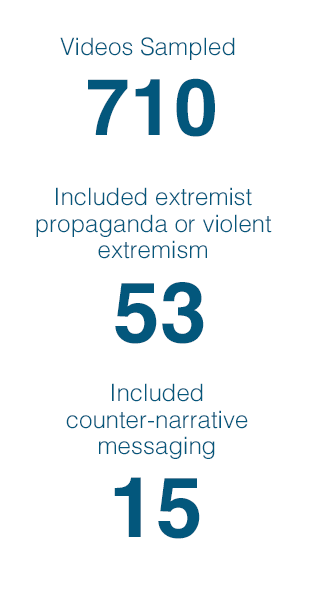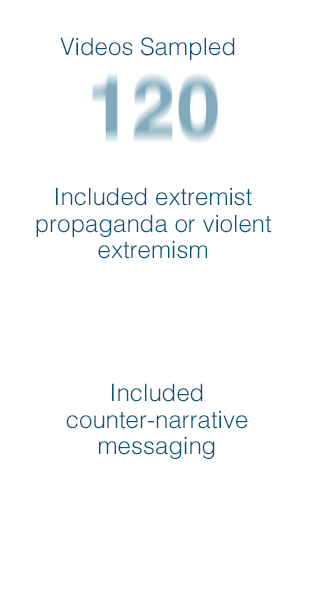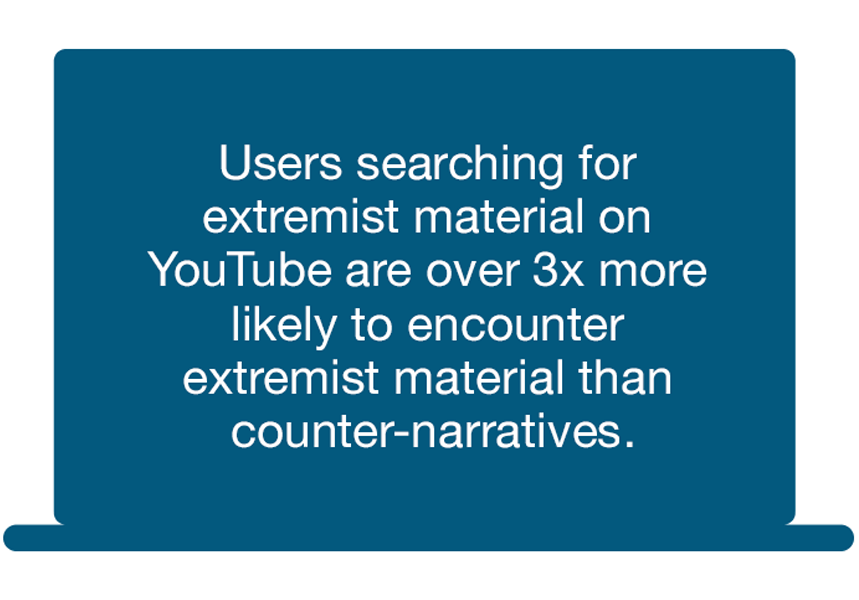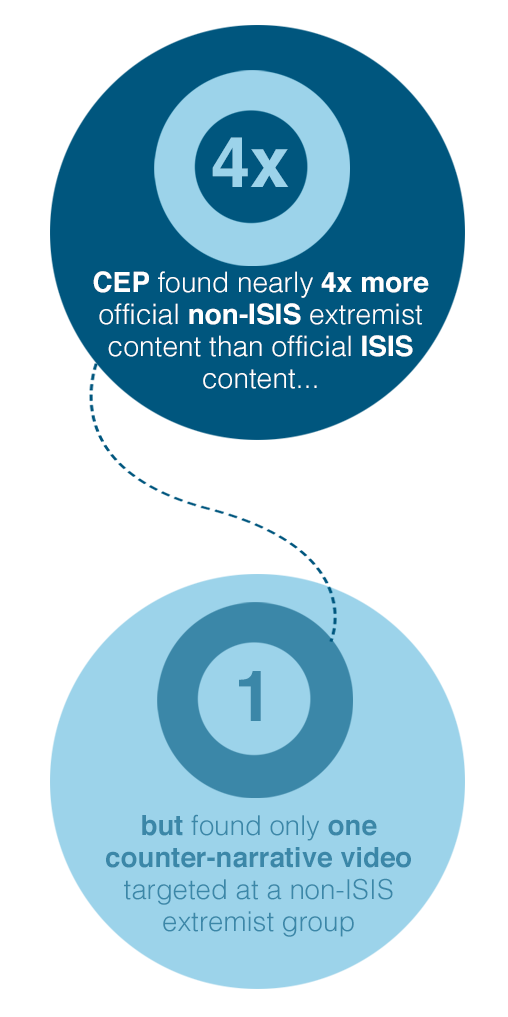

ISIS and other extremist groups, as well as their online supporters, have continued to exploit and misuse Google’s platforms to disseminate propaganda material, despite the company having repeatedly announced increased measures to combat online extremism. On July 21, 2017, Google announced the launch of one such measure––its Redirect Method Pilot Program. The program is intended to target individuals searching for ISIS-related content on YouTube and direct them to counter-narrative videos, which try to undermine the messaging of extremist groups. The Counter Extremism Project (CEP) monitors and tracks ISIS and other terrorist organizations’ material on YouTube. Between August 2 and August 3, 2018, CEP reviewed a total of 649 YouTube videos for extremist and counter-narrative content. The result of CEP’s searches highlights the extent of the enduring problem of terrorist content on YouTube and undermines claims touting the efficacy of the company’s efforts to combat online extremism.
Extremist propaganda––including violent propaganda––is still readily accessible on YouTube. Out of the 649 videos manually reviewed and analyzed by CEP, 36 videos (more than 5.5%) contained extremist content. Out of those videos, 18 included content that was explicitly violent or gory. However, official ISIS propaganda appeared comparatively less often. Only 1 video found was an official ISIS propaganda release, while 11 were official propaganda releases from non-ISIS extremist groups, and the remaining 24 videos were unofficial propaganda videos. These numbers suggest that although YouTube may have improved its takedown practices, especially for ISIS videos, terrorist networks and their supporters still employ the platform to spread official propaganda videos and violent content.


Meanwhile, Google’s efforts to promote counter-narrative content appear to be inconsistent and insufficient. For the 649 videos checked, CEP was 4 times more likely to encounter extremist material than counter-narratives. All 9 counter-narrative videos were found in the search results for two terms that Google’s Redirect Method specified were targeted for counter-narrative messaging––"اإلسالمية الدولة") "Islamic State" in Arabic) and for "تتمدد و باقية " ("Remaining and Expanding" in Arabic). However, no counter-narrative material was found in the search results for two of the other terms specified by Google’s Redirect Method as targeted for counter-narrative messaging, "Al Dawla Al Islameyah" (the English transliteration of "Islamic State" in Arabic), and "Baqiyah wa Tatamadad" (the English transliteration of "Remaining and Expanding" in Arabic). Furthermore, Google’s efforts to remove extremist content and promote counter-narrative messaging do not appear to be equal between unfiltered and filtered searches. Although counter-narrative content outnumbered extremist content in the unfiltered search for "اإلسالمية الدولة") "Islamic State" in Arabic), it did not when filters were applied.


YouTube’s efforts to combat terrorist content on its platform appear to be primarily targeted at ISIS. Nonetheless, not only has the company insufficiently addressed the presence of ISIS material, it has also failed to make similar efforts targeting non-ISIS terrorist and extremist content. CEP found four times more official non-ISIS extremist content than official ISIS content, but found no counter-narrative videos targeted at a non-ISIS extremist group. CEP encourages YouTube to focus on ensuring a more consistent and encompassing application of counter-narrative messaging, as well as the removal of all extremist and terrorist material from its platforms, in line with YouTube’s own public statements and company policy.


Extremist propaganda––including violent propaganda––is still readily accessible on YouTube. Meanwhile, Google’s efforts to promote counter-narrative content appear to be inconsistent and insufficient.